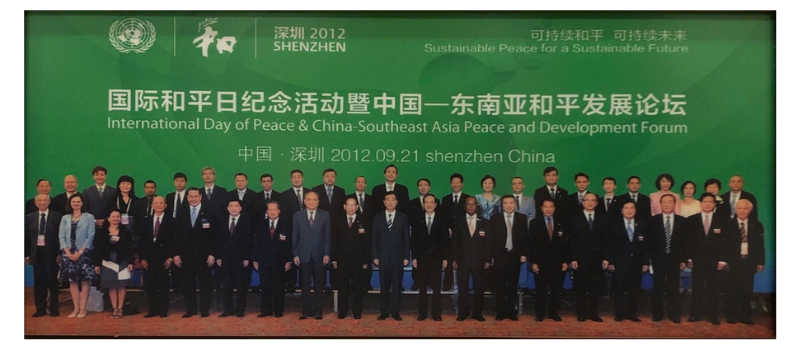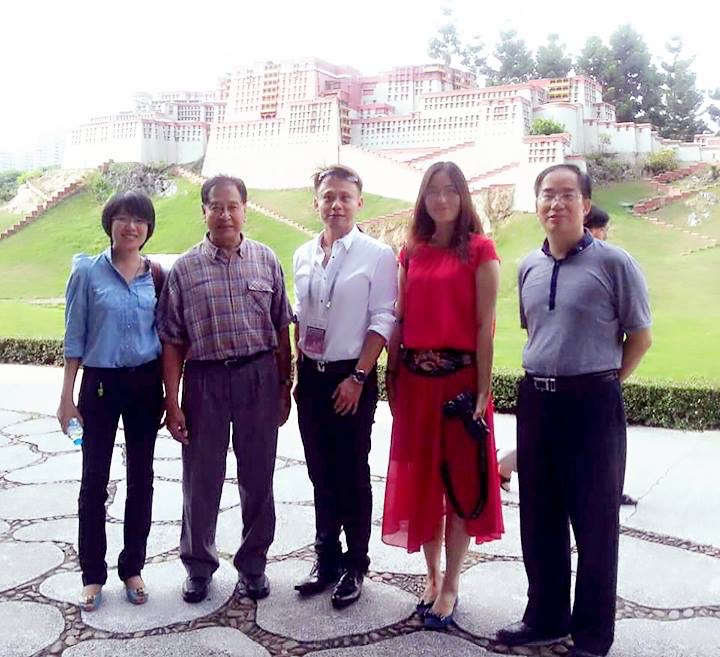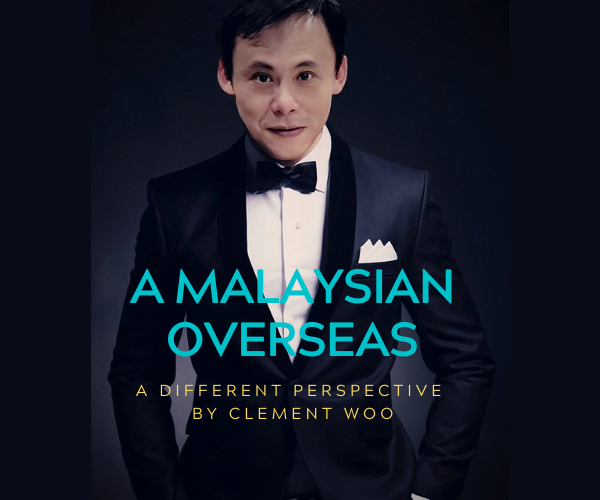Depending on the occasion and audience, Malaysians can easily switch between normal English to Queen’s English or to Manglish in a split second, writes Clement Woo.
In 2012, the China-South East Asia Peace Forum was hosted in Shenzhen where many retired and serving government leaders were invited. It was held during the height of the Spratly Islands dispute for some obvious reasons then. My mentor and business partner who also happened to be the former Prime Minister of Cambodia, Dr Ung Huot, was among the key invitees slotted to speak at the event.
Dr Ung, representing the Kingdom of Cambodia, invited me to join him for the forum and the ever-gracious organiser duly agreed to his request to bring a Malaysian as his only guest. At that time, I couldn’t figure out the reason behind his intention to bring a Malaysian instead of a Khmer as per the usual protocol. Everything was going almost perfect as the Chinese paid attention to even the smallest details. Diplomatic officers from Shenzhen Foreign Affairs Office and official translators were assigned to all VIPs.

The diplomacy protocol was based on the seniority of the last held or most current office of the VIPs. As Dr Ung was the most senior ranking VIP among them. The others were either former Deputy Prime Ministers (DPM), Senate President, Chief Judge, Minister or Chief Prosecutors, among others. Thus, Dr Ung had been given the privilege to represent all the leaders as the key speaker for the closing speech. Although Dr Ung speaks impeccable English, he had chosen to conduct all his speeches and press interviews in Khmer, his national language. Not a single word of English was being said during the four-day forum.
The Chinese arranged for us to stay in a very beautiful resort with an equally impressive lake surrounding us. Next to ours was the villa occupied by Laos’ former DPM and his guests. On the third night, Dr Ung really wanted to get acquainted with the Laotian VIP. He went over to introduce himself and started to chat with the DPM who could not speak English. All the translators had been sent home earlier, so there was no one available to translate for them. Except for a Thai-Chinese translator who happened to pass by our villa on his way home. Dr Ung caught hold of him and requested for him to translate the Lao into Chinese for the Laotian’s former DPM. (Lao language is very similar to Thai).
“Clement, you are a Malaysian. Please translate the translator’s Chinese into English and vice versa for me,” Dr Ung told me. Many peoples have this impression that all Malaysians are bilingual or trilingual or polyglot [more than three languages]. They also automatically assume that all Malaysians are language nerds who can easily pickup any language whenever we want.
Back to that ‘get to know each other better’ conversation, it started quite awkwardly with three translations between us. Eventually, however, it went smoothly and ended well with the invitation to visit Laos extended from the former DPM to us for any possible business exploration and venture. By then it dawned at me that the main reason for Dr Ung to invite me to tag along was because I am a Malaysian. A Malaysian supposes to be a polyglot, speaking numerous thinkable and unthinkable languages. We are supposed to switch between languages like eating peanuts. That Malaysian’s super ability usually helps us to open the doors of opportunities.

Queen’s English
Depending on the occasion and audience, Malaysians can easily switch between normal English to Queen’s English or to Manglish in a split second. Sometimes we even add in some Australian or a dialect from another state just to give that extra oomph. This mastery is extended to our own national language too. From bahasa rasmi (official language) to bahasa pasar (informal language). From bahasa bangsawan (aristocratic language) to bahasa membawang (gossips).
For some Mandarin [Putonghua] speakers like me, we have that ‘auto switch mode’ which enables us to speak localised Mandarin when in Malaysia and proper Mandarin when we are abroad. Perhaps, because of this in-built flexibility, it enables Malaysians to easily adapt and pickup other languages. We can learn Bahasa Indonesia faster than any other because of the similarity of our own Bahasa Melayu plus the in-built flexibility. If you are a Cantonese speaker, you will have that same extra advantage in mastering Vietnamese too.
Few years ago, I was having my coffee at one of the alfresco dining areas in Phnom Penh. I was happily puffing away my favourite Marlboro Light while talking in loud Cantonese over the phone with a friend overseas. When the phone call ended, a stranger suddenly approached me. He looked curious but tried to be friendly.
“Xin Sang, nei hai hiong kong yan ? [Hello Mister, are you a Hong Konger?] Nei dit bak wa gong de kung hou. [Your Cantonese is very good]. I answered him matter of factly that I am a Malaysian, thanked him and we started chatting away. Two foreigners in a foreign land with a common language and love for the same brand of cigarettes bonded us almost immediately. Apparently this gentleman was one of the directors of a property development company in Hong Kong and that was his first fact-finding trip to Cambodia. Eventually we met up again and managed to do several small deals together. This can happen to anyone. Imagine if you are that Malaysian who speaks Arabic over the phone, a Middle-Eastern businessman overheard and approach you instead. It will be you who get the deals instead.
Post COVID-19 era will see many economies fall into depression, one of the worst in modern history. But the worst has yet to come, Malaysia is no exception and all of us should brace ourselves for the impact.
The future will be the economy without borders. ASEAN will be an open market. There are some countries like Indochina that will be less affected by this depression due to the fact that they are less reliant on exports and have a huge population creating huge domestic demand. Just like a mini China.
We Malaysians are a blessed nation with our country free from natural disasters and her peoples are gifted with multi-linguistic talents. Utilise this gift and consider venturing yourself overseas. Be adventurous, work hard and with a bit of good luck, you shall prevail.
God bless.
“Just start. Don’t worry that you don’t have all the answers yet.” – Alli Webb
A

New Malaysia Herald publishes articles, comments and posts from various contributors. We always welcome new content and write up. If you would like to contribute please contact us at : editor@newmalaysiaherald.com
Facebook Comments